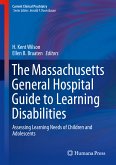Dieser Download kann aus rechtlichen Gründen nur mit Rechnungsadresse in A, B, BG, CY, CZ, D, DK, EW, E, FIN, F, GR, HR, H, IRL, I, LT, L, LR, M, NL, PL, P, R, S, SLO, SK ausgeliefert werden.
Hinweis: Dieser Artikel kann nur an eine deutsche Lieferadresse ausgeliefert werden.
"The purpose of this book is the dissemination of the programs it developed. The target audience is 'clinicians, researchers, academicians and graduates in the field of clinical psychology.' It is a valuable read for specialty physicians and advanced practice nurse leaders, psychosomatic clinicians, and others who may catalyze similar programming. ... Kudos are due to the authors for evolving these programs and presenting a concise, easy-to-digest guidebook." (Alan Anthony Amberg, Doody's Book Reviews, March, 2016)









